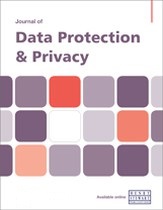An exemplary illustration of the distinction between private life and data protection (Art. 7–8 CFR): The ECtHR’s joint decision in FNASS v France and Longo v France (Art. 8 ECHR)
Abstract
The European Court of Human Rights (ECtHR) ruling of 18th January, 2018 in the joined cases FNASS v France and Longo v France, aims at clarifying various aspects of a surveillance regime imposed on certain athletes for the purpose of conducting doping controls. Under so-called ‘whereabouts requirements’, certain athletes must be available for testing at any location on a 24/7/365 basis. To this effect, a series of surveillance measures are required under standards emanating from the World Anti-Doping Agency (WADA). Their ‘integration’ into French national law (not ‘transposition’, as WADA is an NGO) had been challenged by a group of athletes’ trade unions (Fédération Nationale des Associations et Syndicats de Sportifs) (FNASS v France) as well as by an individual athlete aggrieved by the application of ‘whereabouts’ rules (Longo v France). Because the ECtHR did not find a violation of Art. 8 ECHR (European Convention on Human Rights), WADA, anti-doping organisations and sports organisations have seen this judgment as a victory for their vision for anti-doping policies and practices. The judgment deals almost exclusively with the offline aspects of surveillance, however, while it is nearly silent on data protection issues, although these continue being discussed controversially. As such, the case is also a textbook illustration of the distinction between private life and data protection.
The full article is available to subscribers to the journal.
Author's Biography
Jacob Kornbeck works in the European Commission, Youth Unit, where he is in charge of the Structured Dialogue with young people, relations to the European Youth Forum, EU Presidencies and the Council of Europe, while also providing data protection advice related to the running of the Youth Unit’s databases with online registration tools (European Voluntary Service (EVS), European Solidarity Corps (ESC), European Commission Traineeship Office). Jacob has previously worked in the European Commission, Sport Unit, on data protection aspects of the anti-doping fight, and in the secretariat of the European Data Protection Supervisor (EDPS). In addition to various academic degrees (BSc, MA, PhD, LLM), he holds a Certificate for Data Protection Officers and other Data Protection Professionals from the European Institute of Public Administration (EIPA) in Maastricht.
